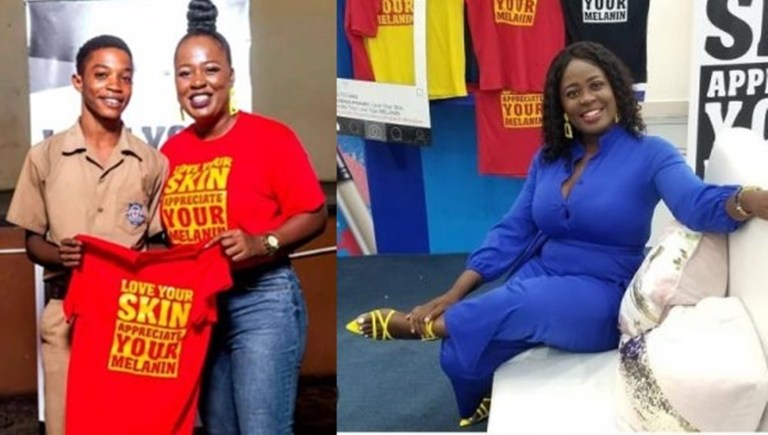By Carlena Knight
Having being exposed to societal norms that influenced her to change the colour of her skin from the tender age of 11 years, a Jamaica native and activist is on a crusade to encourage nationals in Antigua and Barbuda and the rest of the Caribbean to “appreciate their melanin” and embrace their natural beauty.
Shari-Ann Henry – founder of ‘Love your skin! Appreciate your melanin’ – has been known for her impactful work through melanin marches, symposiums, and community and school outreach programmes. It is through these ventures that she has educated the public on the importance of self-love and being proud of one’s skin.
Despite the volumes of information on the matter, Henry says it is still a prevalent dilemma not only in Jamaica but other Caribbean countries as well, especially in the ghetto.
“As I said on a live the other day, it is through fashion that they have basically adopted this practice, for example in Jamaica especially in the ghetto, it is the minute Rihanna should drop the latest trend in terms of fashion, they will go and make that outfit, but in their minds they won’t look as good unless their skin is like hers.”
The law student however negated the idea that only lower-class people bleach since professionals have also been known to tone as some job opportunities are lost for darker skinned individuals as opposed to those with light skin.
According to Henry, low self-esteem and societal influences from family and the community are two of the biggest factors that push someone to bleach or tone his or her skin. In fact, this she says has been a custom since slavery that has trickled down to today.
“Once you were working in the slave quarters, chances were you were of a lighter skin tone, and if you were on the fields, you were very black so it emanated from there, and the truth is the remnants of slavery and colonialism are very evident in the way we do things, who we accept in certain places, modelling [and] certain jobs like promotional ones.
“We have seen black persons winning international pageants, but as I said the other day to someone, when you look at them, some of them they do have features like a straight nose, and if they don’t, chances are they are mixed so they have what Jamaicans would call ‘pretty hair,’ so it’s not really that full blown [black person] that is really winning these pageants.”
Through her own experience she testified that the bleaching did not do anything to change how she felt, instead it just elevated her low esteem to the point that she could not look in the mirror. This, she says, was another motivating factor as to why she is so heavily involved in bringing awareness to men, women, girls and boys that they are beautiful just the way they are.
Since Covid, the outreach has now turned virtual.
“Since Covid, I’ve used Instagram in particular to basically showcase the talents and skills of our kings and queens in different social spaces through the Melanin Mondays Instagram Live as well as the Melanin Mondays feature in the different social spaces – professional, political, youth, entrepreneurs, all of that. Persons as far as Nigeria have even spoken.”
She revealed plans to come to Antigua to widen the fight. No date however has been set.
Local counsellor, Karen Norton, also weighed in on the conversation and commended Henry for her initiative. She said that she has seen cases of persons who suffer from low self-esteem and have decided to bleach, but says it is the adults in Antigua who are more prone to participating in such practices than youngsters.
She further noted that society needs to be careful to not “paint a broad brush” for everyone, but instead find out the reasons behind persons bleaching and then act accordingly from there.
“As a counsellor, I’ve reached the stage where I don’t try and tell a person, oh because you are bleaching you have low self-esteem. Adults have a right to choose to be themselves so I felt that if they are of a sound mind then it should be fine. “I personally may not agree with it, but I have to respect people’s right to be themselves. Unless that person tells you their story, if they bring it to you say, I feel like I am ugly and I feel like I’ll be more accepted if I am lighter or I will get a better job, then you can say to them, then why do you feel ugly, and find ways to help them feel beautiful. Just understand that beauty comes in all shapes, sizes and skin tones.”

